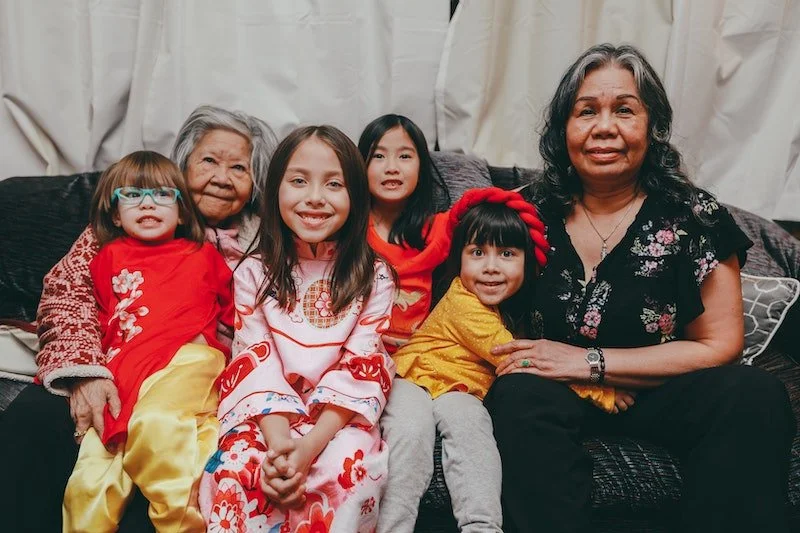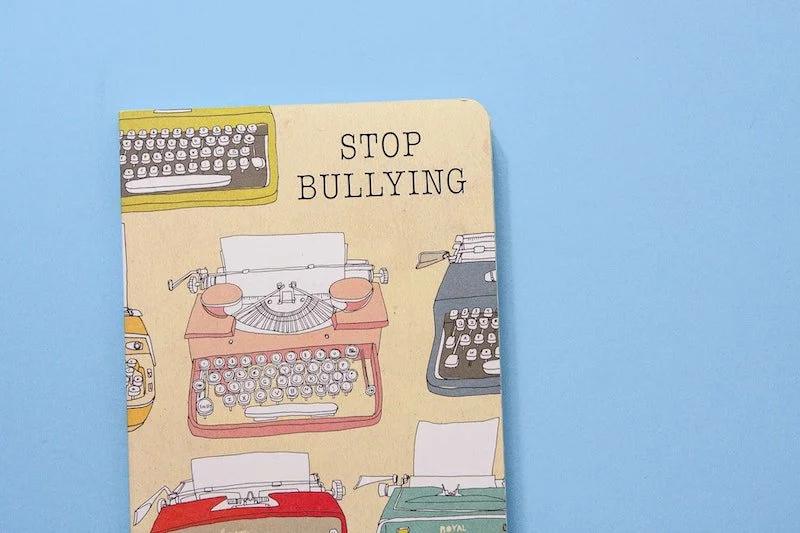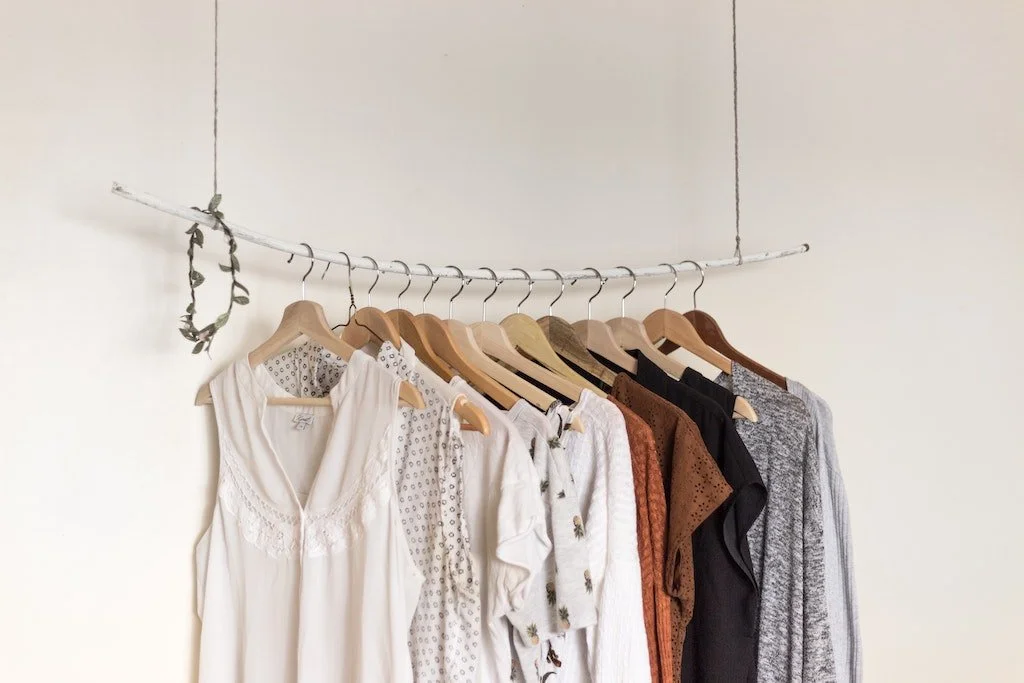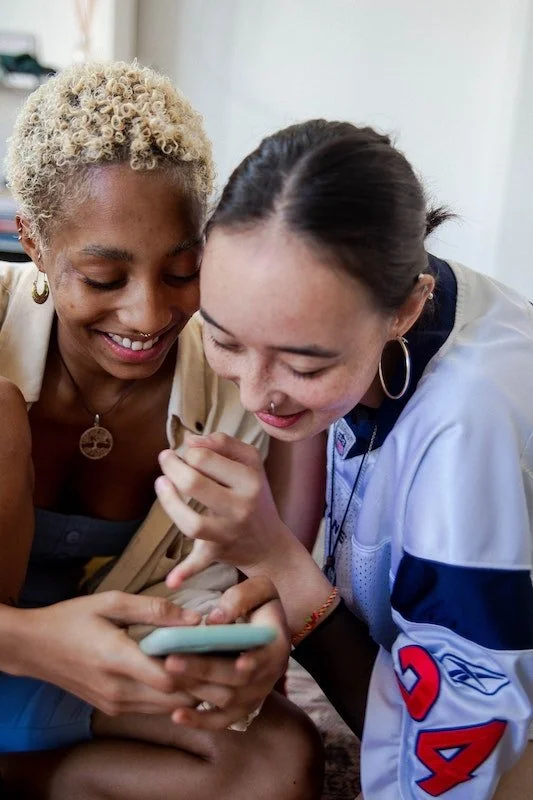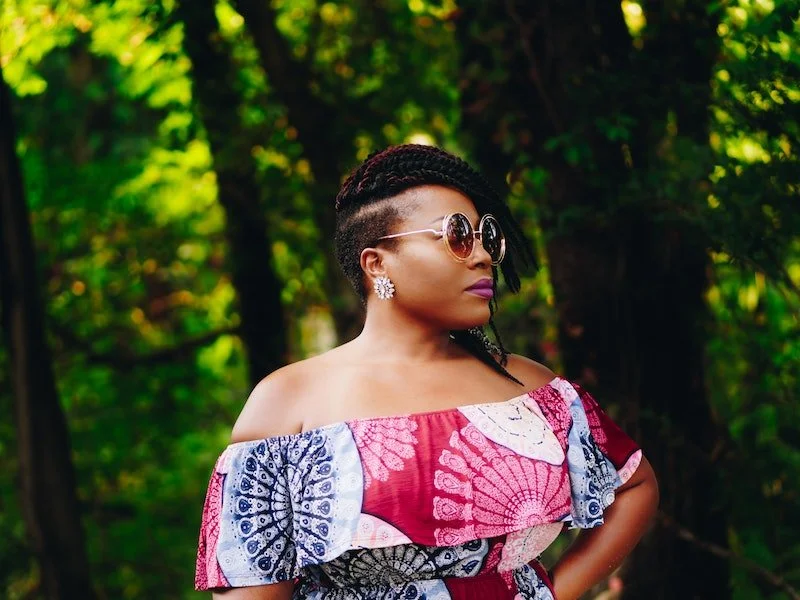What Influences Body Image: 5 Ways to Feel Better About Your Body
When discussing what influences body image, it’s important to recognize why this is something we would even care about in the first place.
From a young age, we’re taught that our bodies are a never ending project to always be fixing in one way or another.
No matter what we do, it seems like it’s never good enough right? We’re motivated to spend money on plans, programs and products because they promise a smaller waistline, whiter teeth, less wrinkles, etc.
The diet and weight loss industry is a $72 billion one, and the beauty industry is around $460 billion. People spend a LOT of time, energy, and money on trying to meet unrealistic body and beauty ideals at the expense of our mental, emotional AND physical health.
In this post I discuss what influences body image to hopefully help you understand a bit more about why you may feel such pressure and stress about what your body looks like.
I then guide you through some practical tips to take action on right away so that you can start developing more positive body image, aka how to feel better about your body without changing it.
***Privilege disclaimer***
As a thin, white, cis, able bodied woman, I live in a body that benefits from a lot of privilege. I do not personally understand someone’s lived experience of being in a larger body. It’s important to acknowledge the challenges that comes from being a larger bodied person in our society and how that affects body image. I hope that my work and resources such as this post can help you to find at least a bit more peace with your body, and learn to respect it just a bit more. I hope we can untangle weight from worth, value, and health so you can live a happier, more fulfilling life regardless of your body size.
Without further ado, let’s dive in!
What is body image?
Body image is how you view your body and the thoughts and feelings you have about your body (both positive and negative).
The thing about body image is that it isn’t dependent on actual body size – contrary to popular belief. Often times weight loss does NOT lead to more positive body image because we’re focusing on an external thing (weight loss) to give us internal reward (happiness.)
Since body image is in the brain and dependent on thoughts and perceptions, we have the power to change it.
In order to develop more positive body image, our goal is to change minds about bodies, rather than the bodies themselves.
We do this through improving self-esteem, self-care, body respect, and working towards accepting that bodies naturally come in all shapes and sizes, as well as zooming out to see that you are WAY more than a body.
It’s important to first understand what influences body image.
What are the factors that influence body image?
Upbringing – parent and family influence
Our DNA
Peers and bullying
Coaches and sports
Media
Clothing
Trauma
Racism
Anti-fat bias and weight stigma
Upbringing: parent and family influence on body image
Think about how your own parents, parental figures and family members spoke to you about your body and/or their own bodies. Was it kind, loving, supportive and inclusive? Or was it self-deprecating?
As young children, we literally learn how to be humans from our parents and immediate family members. If we are lucky, our families pass down amazing qualities such as tenacity, drive, and sense of humor. Unfortunately, we may also learn qualities such as body hatred, self-criticism, or a disordered relationship with food.
The truth is, whoever raised us did the best they could and likely didn’t mean to cause harm. Sometimes we need to work out these deep wounds in therapy. The jist of it is that how our parents and family spoke about their bodies likely had an impact on how we saw or see our own.
These comments from others are a huge factor of what influences body image.
Our DNA influences body image
We are literally hard wired to seek pleasure, avoid pain, want to fit in, and care about what other people think. It’s a defense mechanism or survival of the fittest if you will.
We live in a culture that glorifies the ideal of thinness regardless of how that pursuit may f*ck up our mental (or physical, or emotional) health. The truth is, MANY people don’t naturally fit that “thin ideal.” This means we have a LOT of people striving to fit a mold they were never meant to fit.
This isn’t their (or your) fault though. It makes perfect sense why someone would strive to fit the body size and shape they are told is what’s “right.” Often times, the closer one is to the “ideal” body type, the safer they are from bullying and harassment.
Achieving the thin ideal also often comes with it many opportunities including fame, money, attention, job opportunities, better healthcare, and more. It makes perfect sense why our DNA drives us to fit that mold because it’s deemed as safer than not fitting the mold.
Peers and Bullying
You can probably remember how your friends spoke about their own bodies (or yours) growing up, and how that impacted how you then felt about your own body and maybe even how you still feel about your body today.
One of my clients remembers her friends making self-deprecating comments about their thicker thighs, stomach rolls or pudgy cheeks at the young age of just 6 years old.
Researchers are finding that this is not an exception to the rule and that it’s actually quite common for body image issues to start as early as age 5.
When your pals say negative things about their own bodies it surely sucks, but being targeted by bullies about your weight is a whole other super harmful issue. It’s no surprise that people who are bullied for their weight as kids often grow up as adults with negative body image.
If you were teased for your body in any way, I’m sending you a boatload of compassion and validation for how this has affected your life.
No one deserves that shit and all I can say is that when people bully others, it’s usually a reflection of how they feel about themselves. They clearly aren’t very happy people. Confident, happy people don’t go around putting others down.
Coaches and sports
In the same realm as peers and bullies, coaches and sports can also have a pretty big impact on what influences body image.
Depending on the sport you play or activity you engage in (dance, ice skating, etc) it may be RIPE with unrealistic expectations of what your body “should” look like in order to partake in that sport.
Luckily, there’s more being done now in particular sports to change this culture of body shaming such as in figure skating, for example.
Some of my clients have very vivid memories of body shaming comments their coaches made towards them, or made them run extra miles or do extra work because of their body types.
Media
When considering what influences body image, media is a HUGE factor.
Let’s be real, mainstream media does a HORRIBLE job of inclusion. When you think of the pictures we’re flooded with on a daily basis in magazines, tv, movies, social media influencers, etc. does it include ALL bodies?
Does it include realistic bodies? Real bodies? Diverse bodies? No, it definitely does not. LOTS of people are left out of the mainstream media.
There’s not much in the way of diversity in media when it comes to LGBTQIA+, BIPOC, larger bodies, people with disabilities, people with skin conditions, etc.
So when you’re a person whose not thin, white, able bodied, cis-gender, and heterosexual and the images you see are mostly that, you may think there’s something wrong with you.
In reality there’s something wrong with the culture of media and how it breeds negative body image.
“‘Thirty-two percent of teen girls said that when they felt bad about their bodies, Instagram made them feel worse,’
…researchers said in a March 2020 slide presentation posted to Facebook’s internal message board, reviewed by The Wall Street Journal. ‘Comparisons on Instagram can change how young women view and describe themselves.’”
Clothing
Most clothing stores only go up to a size 12, and standardized sizing leaves a lot of bodies out of the picture. It makes perfect sense why clothing (and especially shopping for clothing) can make people feel like shit about their bodies.
Did you know that “the [average American woman] wears between a Misses size 16–18, which corresponds to a Women’s Plus size 20W, with greater distinctions found when considering race and ethnicity”
according to The International Journal of Fashion Design, Technology and Education
So trust me it’s not you, it’s the industry.
Trauma
Trauma can be a key factor in what influences body image for many people because our trauma history can have a direct impact on how we perceive our bodies, and how we feel about them.
Verbal, emotional, or physical abuse, weight stigma at the doctor’s office, or assault are just a few types of trauma that can make the body feel unsafe, shameful, or wrong.
Trauma can then impact how we care for our bodies and create a negative relationship with them.
Working with a trauma informed dietitian and therapist can be very helpful in working through these challenges.
Racism
In the mid to late 1800’s, there was a huge new wave of immigrants to America. In her book, Anti-Diet, Christy Harrison elaborates that, “the emerging white middle class was looking for ways to assert and maintain a dominant position in relation to the new immigrants, and body size became a key point of comparison.”
Sabrina Strings notes in her book Fearing the Black Body, “the current anti-fat bias in the United States and in much of the West was not born in the medical field. Racial scientific literature since at least the eighteenth century has claimed that fatness was ‘savage’ and ‘black.’”
In other words, our society’s issue with fatness, body size and shape has racial roots. Want to learn more? Check out these articles:
The Racist History of Fat Phobia and Weight Stigma
The Bizzarre and Racist History of the BMI
Anti-fat bias and weight stigma
Last but most certainly not least is probably one of the biggest influencers on body image – anti-fat bias and weight stigma.
Anti-fat bias, also commonly known as fat phobia (you can read why I personally don’t use the term fat phobia here) is:
“the attitudes, behaviors, and social systems that specifically marginalize, exclude, underserve, and oppress fat bodies.”
Anti-fat bias is woven into the structures and systems of our society and creates a reality for many people in which they are oppressed for simply occupying the body they live in.
Weight stigma is:
“Consistent, systemic oppression against larger-bodied people, which makes it difficult or impossible to find clothes and spaces that fit, healthcare that’s effective and non-discriminatory, equal access to employment, and other basic human rights that we all deserve.”
When people in larger bodies face very real discrimination, oppression, public shaming, and discriminatory healthcare it can severely impact the way they feel about simply existing. It can drive a severe desire for thinness at any cost in order to feel safer in their bodies.
Improving body image
Now that we’ve gone over the key factors of what influences body image, let’s dive into what we can do to develop more positive body image.
Developing more positive body image IS NOT:
“I have to love everything about my body in order to have positive body image.” It’s also not just simply loving your body all the time. In fact, you don’t ever have to love your body.
Developing more positive body image means that you will still have bad body image days. This is normal, but the difference is that you still care for your body regardless how you feel about it on any particular day.
In other words, how you feel about your body doesn’t dictate whether you deserve to eat or not, or exercise or not, or whether you’re deserving of self-care.
Positive body image isn’t believing your body looks good; it is knowing your body IS good, regardless of how it looks.
More Than a Body, Lexie and Lindsay Kite
It’s about loving, caring and appreciating your body because of what it can do FOR you and allows you to do, not because of what it looks like.
Here are 5 ways to start feeling better about your body without changing it, aka…
How to develop more positive body image:
Do a social media detox – clean up your feed of unrealistic ideals
Set boundaries with family and friends about food and body comments
Wear comfortable clothing that fits your here and now body
Develop a healthier relationship with exercise, AND get outside!
Start focusing on health rather than weight
Do a social media detox – clean up your feed of unrealistic ideals
Since social media is a huge piece of what influences body image, it’s super important to address how our social media is either positively or negatively affecting our own body image.
We are FLOODED with severely unrealistic images of other people’s bodies on social media. This is directly linked to the outcome of us then feeling like shit about our own bodies, so it’s IMPERATIVE to clean up your feed.
When I say “clean up your feed” what exactly does this mean? Don’t worry, I have a full article for you detailing exactly how to create a social media feed for better body image and a healthier, happier life!
It will guide you through exactly who and how to follow and unfollow people/accounts that will be more inclusive and realistic. The outcome? Making you feel not so shitty for not living up to severely unrealistic ideals of mainstream media.
Set boundaries with family and friends about food and body comments
We live in a culture re: food and bodies in which it’s socially acceptable (and actually expected) to comment on other people’s food and bodies.
Setting boundaries with family and friends around what is/isn’t okay regarding comments about your eating habits and physical appearance can help.
Check out this post where I offer more support on how to respond to food and body comments and create better boundaries with your loved ones.
Wear comfortable clothing that fits your here and now body
Believe it or not, our clothing is a big factor of what influences body image.
We tend to try to shrink our bodies into these standard sizes or old clothes that used to fit us in the hopes it will bring us a happier life. All this does is make us super miserable and uncomfy in our bodies.
It’s VERY hard to take care of, respect, and nourish a body you feel uncomfortable in wearing too tight clothing. A lot of people think the solution is therefore to lose weight to fit the clothing.
When we do that, we may end up engaging in unhealthy behaviors with food that don’t support our overall health or well-being at all.
Rather than trying to force your body to conform to a previous version of you and be super uncomfortable in the process, try choosing clothing that fits your here and now body. This allows you to be able to focus on positive, health-promoting behaviors and building respect for your body.
Maybe you’ll eventually fit those smaller jeans, maybe not. But for now, just focus on respecting THIS body you have. I promise it will lead to better outcomes than walking around uncomfy all day will.
For more on how to create a kickass closet to support your intuitive eating journey, check this out!
Develop a healthier relationship with exercise, AND get outside!
Exercise positively impacts body image in a variety of ways. It allows us to truly experience all that our bodies allow us to do. Exercise improves self-esteem, releases endorphins (aka feel good hormones) and allows us to feel stronger, healthier and happier.
When we see what our bodies allow us to do such as run, jump, hike, swim, play sports, etc. it gives us a deeper purpose for our bodies vs. looking a certain way.
If you can get out into nature for your exercise, that can help develop more positive body image even more. Nature exposure can also improve body image. This isn’t surprising since nature really is great for everything in my book!
Getting outside for a hike can help you connect on a spiritual level to yourself and the world around you. When you can take in natural beauty with your senses and appreciate your body for getting you out there, it becomes less important what your body looks like.
Start focusing on health rather than weight
Probably the hardest “tip” at all which honestly may take weeks, months or even years to do. No sweat if this seems like the hardest feat of all. As previously mentioned we live in a culture around food and bodies that glorifies thinness at all costs.
This “diet culture” tends to be SUPER non-inclusive of bodies that don’t fit the thin, white, able-bodied, heteronormative, cis ideal. It leaves a LOT of people out of it’s supposed picture of “health.”
If you’ve focused your whole life on shrinking your body to fit unrealistic standards disguised as health, I see you.
If you’re feeling fed up with this, I gotchu. There IS another way of pursuing health and wellness to find a healthier relationship with food and your body, without sacrificing your mental health and hating yourself thin.
For starters, check out this post on why focusing on weight loss *could be* bad for your health and try to have an open mind.
In conclusion…
I hope this post has given you a bit more of an understanding as to what influences body image as well as some practical suggestions for starting to improve your body image right now.
Bottom line, if you feel complicated and mostly not positive feelings towards your body it makes a LOT of sense given what we discussed in this post in terms of the factors influencing body image.
The odds seem stacked against us but you CAN change the way you feel about your body without actually changing it. No matter where you’re at on your journey, whatever you’re feeling is normal and i’m here for you if you need it.
Download my FREE Befriend Your Body eBook!
If you found any or all of this helpful, grab your free copy of my Befriend Your Body eBook. It has even more tips and tools to stop hating on your body so much and start becoming better friends with it.
Even if you hate your body, that’s okay. You can still learn to take care of it and respect it.
This eBook contains helpful body image worksheets that guide you through reframing negative body image thoughts, developing a self-care toolkit, and connecting to the true purpose of your life.



